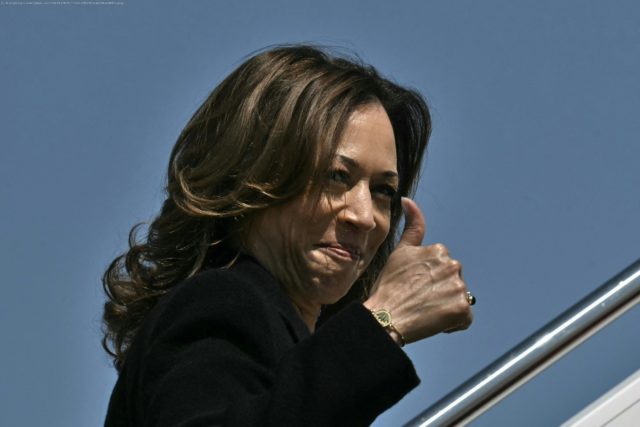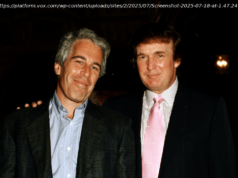A close look at her failed primary campaign suggests Harris has evolved less than previously assumed. There’s still time for her to change, however—but it’s running out.
“Where has this Kamala Harris been all along?” That was the question Time magazine posed three weeks after the vice president replaced President Joe Biden as the Democratic Party’s presidential nominee. Harris, author Charlotte Alter noted, had been “underestimated” by her party as vice president; stories about her lackluster performance, often borne aloft on the strength of anonymous Democratic “insiders” with quotes at the ready, had been a mainstay during her time as Biden’s veep. As the Democratic nominee, however, there was nary a discouraging word. Instead, Harris found herself riding a wave of enthusiasm and seemed made for the moment: “A former prosecutor running against a convicted felon, a defender of abortion rights running against the man who helped overturn Roe v. Wade, a next-generation Democrat running against a 78-year-old Republican.”
Time was hardly the only outlet that noticed a transformation: This was not the same politician whose presidential bid crashed and burned five years ago. The Financial Times’s Edward Luce noted “a metamorphosis from indifferent vice-president to the source of Obama-scale enthusiasm” that had “caught almost everyone unawares,” marveling that a “once-in-a-generation” natural had been hiding behind the scenes. The New York Times charted her rapid evolution from sidelined vice president to arena-packing presidential candidate. A consensus quickly emerged: Harris had, without anyone noticing, become a force to be reckoned with, if not a generational politician.
Three months into her presidential campaign, a more nuanced portrait has emerged. Harris has, in most respects, defied skeptics (myself included) and quieted concerns about her appeal. The doubts about her ability to lead a presidential ticket were clearly unfounded: Harris is a strong candidate (and even better debater) who can win the election in November—all things that could not have been said about Joe Biden.
It is also increasingly evident that Harris is not a significantly different politician than she was five years ago. During her first presidential campaign, Harris struggled to articulate a larger thesis for her candidacy and largely failed to support her thin premises with a coherent policy program; she adopted and shed positions seemingly at random; she struggled when speaking to the media. She has since improved in most of those areas, but weaknesses remain. More than anything else, Harris has benefited from a change in context rather than some self-driven alteration: She is undoubtedly better suited to run a general election campaign than she was to run in a primary.
Disagree with this article? Tell us about it! Seriously—we want to hear from you. Send us a 100-word pitch for a rebuttal essay. If we like your pitch, we’ll ask you to file a roughly 800-word draft, which we’ll edit and publish. We’ll even pay you $200 for disagreeing with us!
Harris is now more successfully executing the strategy that failed to catch fire in the 2020 Democratic presidential primary, running as a protector of both the middle class and American democracy against a plutocratic, authoritarian opponent. She is also repeating many of the same mistakes: She is overcautious and reluctant to stake out positions; her priorities and approach to policy remain murky; her messaging is often overbroad. As the campaign enters its final stretch, Harris’s first, failed presidential run is increasingly instructive: She is, in many ways, running the exact same campaign now that she did five years ago and hoping for a different result.
In January 2019, when Kamala Harris entered the Democratic presidential primary, her party was in a strange place. The notoriously disorderly Democrats had spent two years in uncharacteristic lockstep, doing everything they could to stymie Trump’s increasingly belligerent presidency. But the party was also in the fourth year of an existential crisis: Everyone agreed that Trump had to be stopped, but no one could agree on how to do it.
The 2020 Democratic primary quickly became a supersized version of the 2016 contest, a surprisingly competitive fight between establishment paragon Hillary Clinton, who embodied the party’s embrace of triangulation and centrism, and Bernie Sanders, who pushed universal policies and democratic socialism. When the 2020 primary began, the party remained unsure of its direction: Would it embrace the robust, universal policies pushed by Sanders? Or would it continue to take a more moderate approach? As candidates entered the race, they were quickly sorted into progressive and “establishment” lanes: This rehash of the 2016 contest suddenly had more than a dozen contenders, competing to play one of the two roles available—consummate outsider or reliable institutionalist.
A former prosecutor and recently elected senator, Harris was undoubtedly running in the establishment lane. But her pitch to voters was broader. Harris wasn’t interested in bickering and infighting or, for that matter, relitigating the last primary. For that matter, she didn’t really have an answer to bigger questions about the party’s identity and direction. Instead, her campaign was premised on the idea that Democratic voters were ready to move on and focus on what ultimately mattered: beating Donald Trump.
It was an approach that attempted to turn her biggest liability into an asset. Harris had little policy experience and almost no legislative record: a blank space that permitted her to run as a candidate who could both occupy the center of her fractious party while plausibly representing a clean break from the fissures that had emerged over the previous half decade. Hers was a campaign with one foot in both lanes. Over the course of her 11-month campaign (and particularly as it began to falter), she adopted a grab bag of leftish policies—mandatory assault weapon buybacks, banning fracking, an “openness” to expanding the Supreme Court. Harris wanted to be the establishment candidate who could appeal to progressives.
She was successful—briefly. She won the party’s first presidential debate by delivering a blistering attack on Joe Biden’s past work with segregationists and his vocal support of busing. She exposed Biden, her biggest rival in the “establishment” lane, as old and out of touch. The result was a media coup: Her performance all but announced Harris as a candidate who represented a serious break from the party’s past. It also positioned her as Obama’s natural successor—no small feat, given that Biden had literally served as his vice president.






